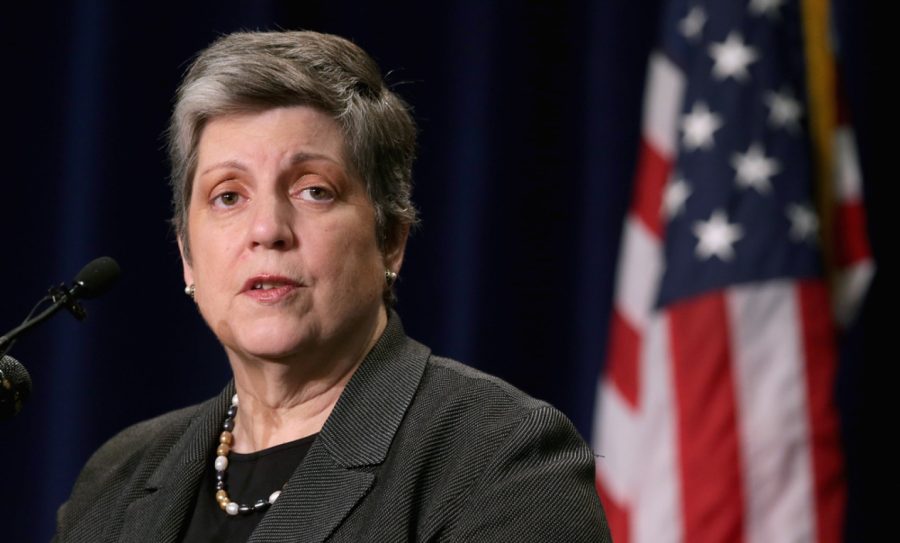University of California President Janet Napolitano answered students’ questions at a forum held at the University of California Washington,. Center on Thursday, April 12.
The forum was attended by students from all nine UC campuses who are currently participating in the UCDC program that allows UC students to intern and take classes in Washington D.C. Before responding to questions, Napolitano and UC Washington Executive Director Helen Shapiro discussed Napolitano’s stance on the Deferred Action for Childhood Arrivals policy, as well as her lawsuit against the Trump administration for attempting to cancel the UCDC program.
Following President Donald Trump’s vows to rescind the program, Napolitano, who established the program during her tenure as secretary of the Department of Homeland Security under former President Barack Obama, met with attorneys to identify the legal flaws of this action and has since sued the Trump administration to prevent them from rescinding the program.
The lawsuit, which is currently before the 9th Circuit Court of Appeals, is expected to be decided on in early fall of 2018.
“In the meantime, the government is continuing DACA, and 55,000 students have re-enrolled in DACA. We are urging Congress to make the [Development, Relief and Education for Alien Minors Act]a permanent statute,” Napolitano stated.
Of the issues raised by students, many centered around the cost of tuition and the UC system’s support of undocumented students.
“The University of California charged no tuition for California residents until 1970, and the 25 years after that, tuition cost less than $5,000. Why does tuition cost so much now?” asked a student from UC Santa Cruz.
Napolitano acknowledged that the increase in tuition is not unique to California, citing that all states cut state funding for higher education during the 2008 recession.
According to Napolitano, the University is working alongside the UC Student Association in Sacramento to advocate that the state legislature increase state funding for higher education, as well as prevent the state from raising the cost of tuition this upcoming year.
Despite the rise in price, “California continues to have a robust financial aid program,” Napolitano said. “One-third of every tuition dollar goes to financial aid, and in fact, 57 percent of in-state students pay no tuition.”
On the topic of protecting undocumented students, another student asked, “Do you support making the UC campuses sanctuary campuses, and do you prevent [U.S. Immigration and Customs Enforcement] from coming to UC campuses?”
Napolitano referred the student to the UC Statement of Principles released in November, which was created to support and protect undocumented students. The document states that undocumented students and students without DACA status will receive the same consideration as any U.S. citizen applying for admission.
“University police are not proxies for, or in joint operations with ICE agents — documents can’t be turned over without court orders. Our goal is to make sure that students are safe and not targeted,” Napolitano noted, not providing a definitive stance on sanctuary campuses.
The topic of overcrowding was raised by another UC Santa Cruz student, who asked, “Considering overcrowding, are there plans to expand or establish a 10th university?”
“Our plan is to finish building out [UC] Merced which currently has a student body of 6,500. We hope to have 10,000 students there by 2020,” stated Napolitano, who noted that any expansion is focused on adding to the facilities, classrooms, labs and housing of existing campuses, rather than the construction of an additional university.
A UC Santa Barbara student brought up the topic of First Amendment rights, asking, “All universities struggle with free speech. It’s expensive and contentious, what has it meant for the University of California, and what are your views?”
“Speech is speech,” Napolitano stated. “Freedom of speech is a fundamental UC value. What that means is that speakers with whom we disagree come to our campuses, because we don’t want to censor speech. Along with those speakers come security costs, and we have subsidized some of those costs for campuses. We have started a National Center for Free Speech and Civic Engagement, where we are funding eight fellows to research the issue.”








